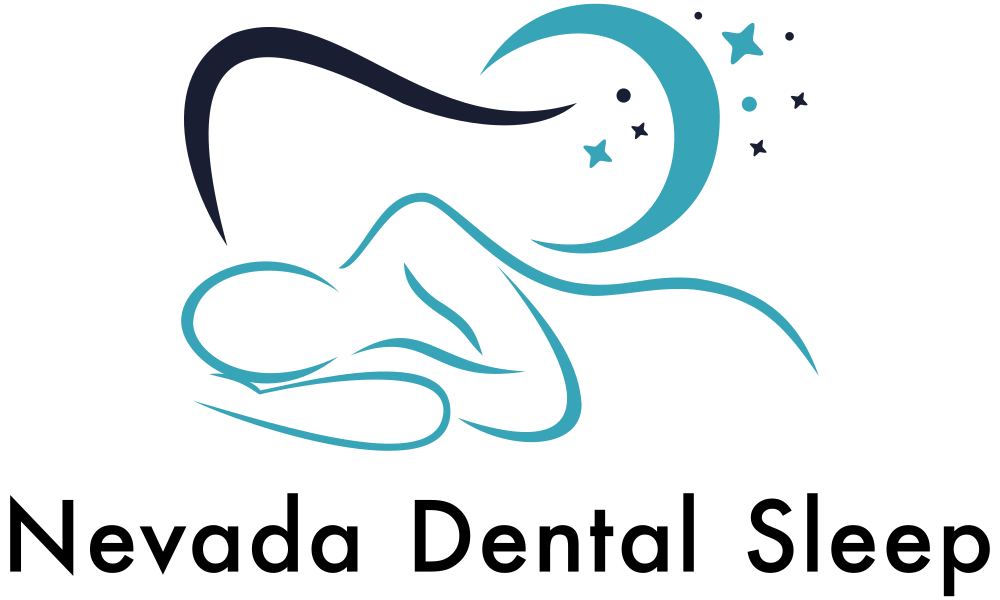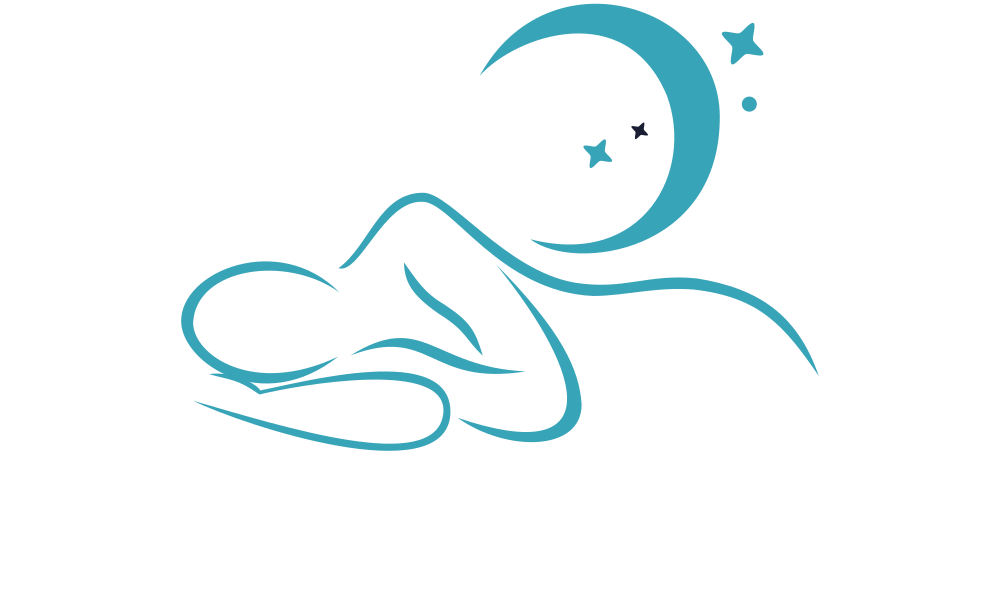Snoring is often brushed off as a minor annoyance—a habit that disrupts your partner’s sleep more than your own. But what if it’s something more serious? For many individuals, snoring isn’t just a nighttime nuisance; it’s a warning sign of obstructive sleep apnea (OSA), a condition that can lead to serious health issues if left untreated.
At Nevada Dental Sleep, we help patients in Las Vegas understand the difference between simple snoring and something more serious. With the guidance of Dr. Jerry Hu, an experienced provider of dental sleep medicine, patients can find answers—and solutions—that improve their sleep and overall health. This article explores the link between snoring and sleep apnea, the risks involved, and the treatment options available.
Why Do We Snore?
Snoring happens when air flows past relaxed tissues in your throat, causing them to vibrate as you breathe. This vibration creates the familiar sound of snoring, which can vary from a soft hum to a thunderous rattle.
Common factors that contribute to snoring include:
- Nasal congestion or a deviated septum
- Obesity or excess neck fat
- Sleeping on your back
- Alcohol consumption before bed
- Enlarged tonsils or tongue
- Jaw or airway structure
While snoring itself is common and not always dangerous, it can also be a red flag—especially when it’s loud, persistent, and accompanied by pauses in breathing or gasping for air.
When Snoring Is More Than Just Snoring
If your snoring is loud enough to disrupt others’ sleep, or if you regularly wake up feeling tired, you may be experiencing obstructive sleep apnea. This condition occurs when your airway becomes partially or completely blocked during sleep, causing you to stop breathing temporarily. Your brain responds by briefly waking you up so you can resume breathing.
This pattern can repeat dozens or even hundreds of times per night, often without your conscious awareness. Over time, these disruptions prevent your body from reaching the deep, restorative stages of sleep, leading to a cascade of health problems.
Warning Signs That Snoring Could Be Sleep Apnea
Snoring that’s associated with sleep apnea often comes with other symptoms. If you or your partner notice any of the following, it’s time to take a closer look:
- Gasping or choking sounds during the night
- Pauses in breathing while sleeping
- Waking up frequently to use the bathroom
- Morning headaches
- Dry mouth or sore throat upon waking
- Daytime fatigue or drowsiness
- Difficulty concentrating or memory problems
- Irritability or mood changes
- High blood pressure or heart palpitations
One of the best indicators is a complaint from your sleep partner. If they notice your breathing stops and starts or you make gasping sounds, those are clear red flags.
The Health Risks of Untreated Sleep Apnea
Sleep apnea is more than just an inconvenience—it’s a chronic condition that can impact nearly every system in your body. When left untreated, it can contribute to:
- High blood pressure
Constant sleep interruptions cause your body to remain in a state of stress, raising your blood pressure. - Heart disease and stroke
The lack of oxygen during apneic episodes strains your heart and increases the risk of cardiovascular issues. - Type 2 diabetes
Sleep apnea is linked to insulin resistance and weight gain, both of which are major risk factors for diabetes. - Depression and anxiety
Poor sleep quality can impact your mental health, leading to mood disorders and emotional instability. - Accidents and injuries
Daytime sleepiness caused by sleep apnea increases your risk of car accidents and workplace injuries.
Clearly, identifying and addressing sleep apnea early is critical—not just for your sleep, but for your entire well-being.
How Is Sleep Apnea Diagnosed?
If you suspect your snoring is a sign of something more, the next step is to undergo a sleep study. This diagnostic test, also called polysomnography, monitors your breathing, heart rate, oxygen levels, and brain activity during sleep.
At Nevada Dental Sleep, we work closely with trusted sleep centers in Las Vegas to make sure our patients receive accurate and timely diagnoses. Depending on your symptoms and medical history, you may be referred for an in-lab sleep study or an at-home sleep apnea test.
Once diagnosed, your sleep physician can confirm whether you have mild, moderate, or severe OSA—and that’s where we come in.
Treating Sleep Apnea with Oral Appliance Therapy
If you’ve been diagnosed with mild to moderate sleep apnea, or if you’re CPAP-intolerant, oral appliance therapy may be the best path forward.
At Nevada Dental Sleep, Dr. Jerry Hu specializes in creating custom-fitted oral appliances that reposition the jaw and prevent airway collapse during sleep. These appliances are:
- Comfortable and easy to wear
- Silent—no machines, masks, or hoses
- Portable and travel-friendly
- Effective at reducing snoring and sleep apnea episodes
Many patients find that their oral appliance is more convenient and easier to stick with than CPAP, leading to better long-term results and health improvements.
Can You Just Treat the Snoring?
For those who only snore and do not have sleep apnea, treatment is still worth considering. Chronic snoring, even without apnea, can still lead to sleep disturbances and strain relationships. It may also be a precursor to developing sleep apnea later in life.
Oral appliances can help reduce or eliminate snoring in many patients—even those without apnea—by keeping the airway open and reducing tissue vibration.
However, before beginning treatment, it’s essential to rule out sleep apnea with a proper evaluation.
Why Choose Nevada Dental Sleep?
When it comes to treating snoring and sleep apnea in Las Vegas, Nevada Dental Sleep offers a unique and specialized approach. Unlike general dentists who may offer a basic mouthguard, our practice focuses exclusively on dental sleep medicine.
We collaborate directly with sleep specialists and tailor each treatment based on your diagnosis, lifestyle, and health goals. Our oral appliances are not one-size-fits-all—they are designed using advanced digital scanning and 3D modeling for the most accurate and comfortable fit possible.
From your first consultation to ongoing adjustments and support, Dr. Jerry Hu and our team ensure your experience is personalized, informed, and focused on lasting results.
Taking the Next Step: What Should You Do If You Snore?
If you’re unsure whether your snoring is harmless or a sign of something more serious, don’t wait. Here’s a simple plan:
- Pay attention to your symptoms. Keep a log or ask your partner if they’ve noticed breathing irregularities, gasping, or restlessness at night.
- Schedule a consultation with Nevada Dental Sleep. We’ll assess your symptoms and, if needed, refer you to a trusted local sleep center for a diagnostic study.
- Review your diagnosis. If you are diagnosed with OSA, we’ll help determine if oral appliance therapy is right for you.
- Start sleeping better. With treatment tailored to your needs, you’ll enjoy better sleep, improved health, and a more energized life.
Final Thoughts
Snoring might seem harmless, but it can be the body’s way of signaling something more serious. If your snoring is loud, consistent, or accompanied by daytime fatigue and other symptoms, it may be time to explore whether you have sleep apnea.
At Nevada Dental Sleep, we provide customized oral appliance therapy as an effective and comfortable solution for patients dealing with sleep apnea and chronic snoring. Led by Dr. Jerry Hu, our clinic offers a patient-centered approach that bridges dental care and sleep medicine.
Don’t ignore the signs. Whether you snore, feel exhausted during the day, or have been recently diagnosed with OSA, help is available—and it could change your life.
Contact Nevada Dental Sleep today to schedule your consultation and discover a better, quieter night’s sleep.


